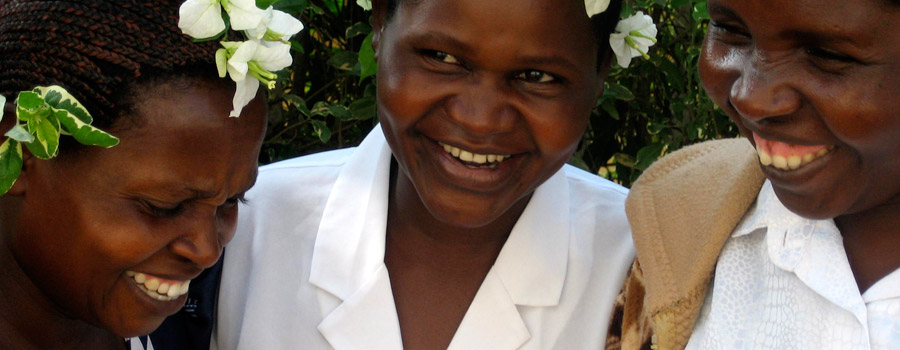Increasing Access to Fistula Services : Women's Perspectives :
Resources & Tools
Evaluation and Research Studies
Sharing the Burden: Ugandan Women Speak About Obstetric Fistula
Women's Dignity Project and EngenderHealth carried out a study in four rural districts of Uganda to bring to light the social, cultural, economic, and medical complexities of obstetric fistula. This study provides evidence on the need for broad-based and sustained action to address maternal morbidity and mortality in Uganda.
Files: English (PDF, 478KB)
Risk and Resilience: Fistula Report
This study explores the many dimensions of fistula through the experiences and views of girls and women living with fistula, as well as their families and communities and the health workers who care for them.
Files: English (PDF, 767KB)
Journal Articles
Profiles and Experiences of Women Undergoing Genital Fistula Repair: Findings from Five Countries
This article presents data from 1354 women from five countries who participated in a prospective cohort study conducted between 2007 and 2010. Women undergoing surgery for fistula repair were interviewed at the time of admission, discharge, and at a 3-month follow-up visit. While women's experiences differed across countries, a similar picture emerges across countries: women married young, most were married at the time of admission, had little education, and for many, the fistula occurred after the first pregnancy. Median age at the time of fistula occurrence was 20.0 years (interquartile range 17.3–26.8). Half of the women attended some antenatal care (ANC); among those who attended ANC, less than 50% recalled being told about signs of pregnancy complications. At follow-up, most women (even those who were not dry) reported improvements in many aspects of social life, however, reported improvements varied by repair outcome. Prevention and treatment programmes need to recognise the supportive role that husbands, partners, and families play as women prepare for safe delivery. Effective treatment and support programmes are needed for women who remain incontinent after surgery.
Link: English
Childbirth Experiences Of Women With Obstetric Fistula In Tanzania And Uganda And Their Implications For Fistula Program Development
Authors sought evidence from the testimonies of women living with fistula regarding local risk factors for fistula and the impact of fistula on women's lives. One hundred thirty-seven women recruited from health facilities and at the community level in Tanzania and Uganda were interviewed using quantitative and qualitative methods, including participatory approaches. Women of all ages and parities endured fistula. The testimonies illustrated that physical, socioeconomic, and cultural constraints, as well as health system failures, led to fistula, and the condition imposed harsh consequences on women's lives. Constraints included deficient maternal health services and personnel, delays in seeking and accessing care, and limited fistula repair services. Women endured severe social stigma and severe economic hardships. Participants' testimonies expand current understanding of women's experience of fistula and point to recommendations that could improve maternal health care, reduce women's risk of fistula, and improve the lives of women living with the condition.
Link: English
Fistula and Traumatic Genital Injury from Sexual Violence in a Conflict Setting in Eastern Congo: Case Studies
In the Eastern region of the Democratic Republic of Congo (DRC), sexual violence has been used as a tool of war. A particularly inhumane public health problem has emerged: traumatic gynecological fistula and genital injury from brutal sexual violence and gang rape, along with enormous psychosocial and emotional burdens. Many of the women who survive find themselves pregnant or infected with sexually transmitted infections (STIs), including HIV, with no access to treatment. This paper compiled data from the Doctors on Call for Service/Heal Africa Hospital in Goma, Eastern Congo, on the cases of 4,715 women and girls who suffered sexual violence between April 2003 and June 2006, of whom 702 had genital fistula. It presents the personal experiences of seven survivors whose injuries were severe and long-term, with life-changing effects. The paper recommends a coordinated effort among key stakeholders to secure peace and stability, an increase in humanitarian assistance, and the rebuilding of the country’s infrastructure, human and physical resources, and medical, educational, and judicial systems.
Files: English (PDF, 587KB)
Meeting Reports
Meeting the Needs of Women with Fistula Deemed Incurable: Creating a Culture of Possibility
In September 2011, EngenderHealth’s Fistula Care project and the Harvard Humanitarian Initiative convened a meeting of international expert fistula practitioners to identify areas of consensus on minimum global standards for complex fistula care in low-resource settings. This report outlines programmatic and research gaps and priorities and includes specific recommendations to assist ministries of health, professional associations, and other key institutions in developing their own guidelines.
Files: English (PDF, 622KB) and French (PDF, 36KB)
Technical Briefs
Living with Obstetric Fistula: Qualitative Findings from Bangladesh and the DRC
What are the social consequences of fistula? What affects how women with fistula are treated? This technical brief provides insights into the experiences of women with fistula in Bangladesh and the Democratic Republic of the Congo. This qualitative research examines the lives of women suffering from fistula in two very different sociocultural contexts, including the physical and social consequences associated with the condition and women’s attempts to obtain care.
Files: English (PDF, 1.0MB)
and French (PDF, 752KB)
Tools
Digital Stories Facilitator's Guide
This guide serves as a companion to the Learn From My Story series, a collection of video testimonies from fistula clients in Uganda. To help people listen to and use the stories, a facilitator's guide was created and includes: the text of each woman's story, discussion questions tailored to each woman's story, and key messages for facilitators to convey. The guide is intended for use with three main audiences: health care providers, women with fistula, and community members.
Files: English (PDF,
2.8MB) and French (PDF, 2.7MB)
Women Tell Their Stories
Through the Fistula Care project and its partners, fistula survivors from around the world have told their stories. Read them in the Transforming Lives section.
![[ Skip Navigation ]](../../data/images/c.gif)



